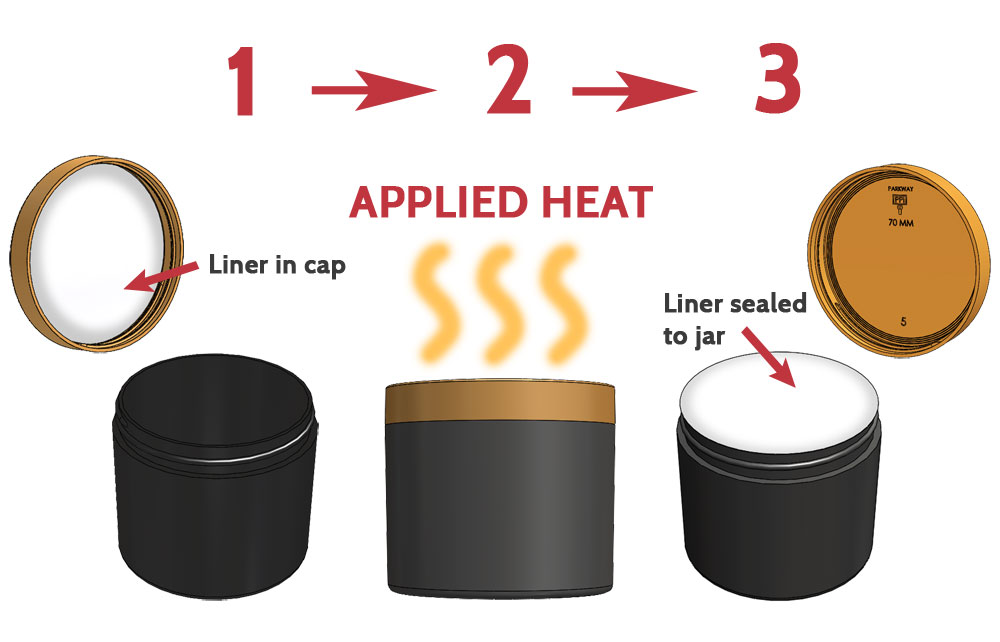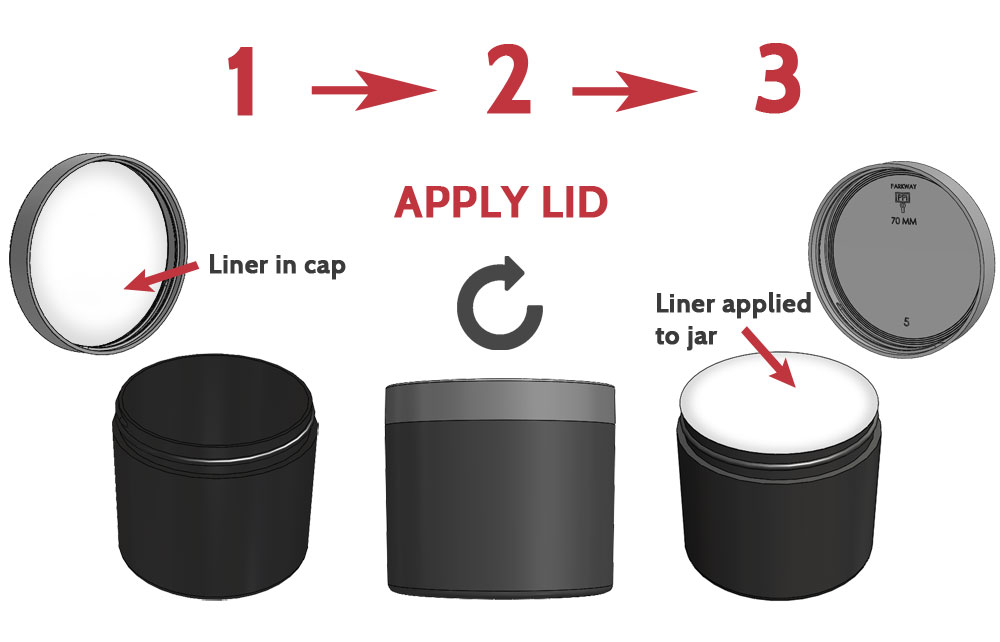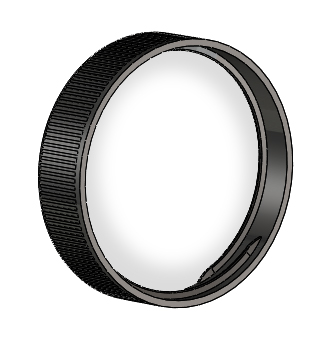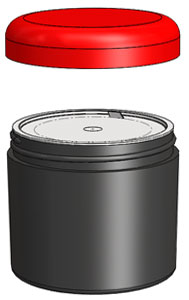 Loading... Please wait...
Loading... Please wait...Blog - Pressure Sensitive liners
Caps and Cap Liners: What's Really Going On Underneath with Foam Liners, Heat Seal, Pressure Sensitive and Cosmetic Disc Liners
Posted by Drew Eisen on 05-23-2018
Caps and Cap Liners: What's Really Going On Underneath with Foam Liners, Heat Seal, Pressure Sensitive and Cosmetic Disc Liners
Prior to a few days ago, my working knowledge of cap liners was pretty much non-existent. To be honest, I had never heard “cap” and “liner” paired together and hadn’t given caps much thought, aside from dedicating a few too many hours in high school to learning the art of snapping bottle caps (which is not to be confused with flicking bottle caps, a less impressive “skill” that requires minimal dexterity or craft).
As your average, overwhelmed consumer in 2018 who until recently knew little about the plastic industry, I was content in my assumption that a plastic cap was… a plastic cap, a top was a top, and so on. But upon doing some light digging, I learned that wasn’t always the case. As it turns out, there’s a lot more going below the lids of certain plastic containers than I had imagined.
And while most people probably couldn’t begin to explain the difference between a heat sealed cap and one that’s pressure sensitive, the reality is that most Americans encounter a spectrum of cap liners every day, we just don’t realize it.
Adding a heat seal liner to a plastic cap is the most effective way to prevent leakage. In heat seal liners, several layers of material (typically foam or paper backing) are added to the cap and then bonded to a foil piece on top by a Heat Induction Machine, a specialized piece of equipment that performs the heat sealing. This process creates a universal seal that’s designed to stick to most materials.
Pressure sensitive liners, used with plastic tops, are made of polystyrene and are designed for use with dry products (and are never recommended for liquids). Pressure sensitive liners are brittle by design, which makes them the preferred covers for tamper evidence: when a pressure sensitive liner is broken, visible creases form in the liner, indicating the seal has been broken. While helpful in monitoring whether or not a container has been tampered with, the level of adhesion offered by pressure sensitive liners is on par with a Post-it Note, and is intentionally not very sticky.
Foam liners, commonly found in plastic lids, are a reliable, multi-purpose liner option that enhances shelf life and allows subsequent sealing after the container is opened. While foam liners provide a good moisture barrier, they are not leak-proof and while they often do accomplish the task of stopping leakage, they are not intended to prevent leaking during transit. The more the top is opened and re-resealed, the less effective it becomes, though the decline in efficacy is gradual.
Currently, Parkway Plastics offers a selection of bulk packed liners (heat seal, pressure sensitive and foam liners) ranging in size from 20-120mm. While bulk packed liners can be ordered prior to a product’s launch, Parkway specializes in time-sensitive orders that allow newer products to address unforeseen issue in real-time— such as unexpected melting or unanticipated leakage in transit. Changes in consumers’ needs or shifting trends in demand are other factors that may lead a product line to consider new or alternative liner options.
While mostly aesthetic, cosmetic disc liners provide a barrier from outside contamination but are less functional (and effective) than other liner options. Cosmetic disc liners pair best with unlined caps and are primarily made for using with dry products and creams, keeping the product off the plastic cap and inside the jar or container in which it belongs.
Since much of what cosmetic disc liner provides a product is, as it turns out, cosmetic in nature, Parkway Plastics offers cosmetic liners in a variety of colors and sizes ranging from 53-120mm.
Liner Note
If you’re thinking about ordering liners to add to your plastic caps or lids, make sure the dimensions match. IE: a 70mm jar would need a 70mm cap which would use a 70mm liner.
[1] http://shrinath.org/products-services/induction-wads/
SHOP NOW & SAVE

.....
ENTER COUPON CODE: BLOG5 to save 5% off your order over $250 at ParkwayJars.com!
.
...
.__________
Drew Eisen grew up in New England and is a Los Angeles based writer, music fan and full-time dog-lover.
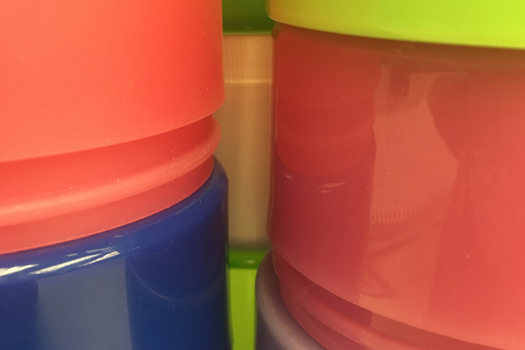
Know Your Plastic: 5 Things You Should Know When Buying Plastic Jars
If you’re new to plastics or are contemplating making your first order of customized plastic jars, here are a five things to consider first: 1. THE LOOK Aesthetically speaking, what type of jar are you looking for? Are you searching for the clear, sleek appearance of a styrene jar? Or the smokey, opaque look of a [...]
Recent Posts
- » Buy Custom Plastic Jars Direct from Manufacturer - Parkway Plastics
- » California Packaging Regulations and You! How does Parkway stack up? Parkway Plastics Meets CA Rigid Plastic Packaging Container Laws!
- » Blow Molding Explained - How PET Jars and Containers are Manufactured!
- » How Reusable Packaging Can Help Improve Your Brand Image & Costs | Safe Plastic Jars for Reuse | Optimize Your Supply Chain with Reusable Plastic Jars and Packaging |
- » Parkway Now Offers Child Resistant Closures | CRC |


